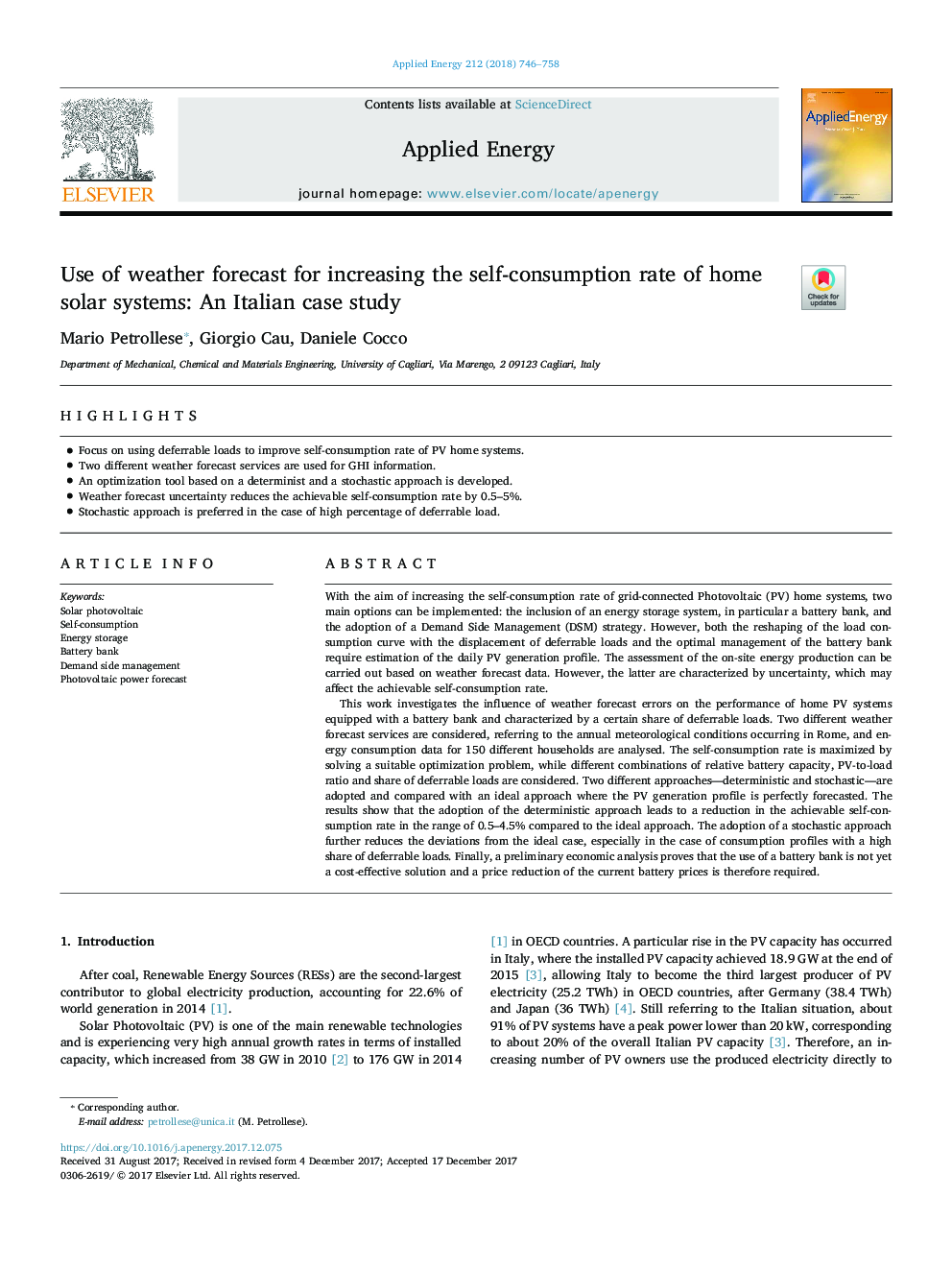| Article ID | Journal | Published Year | Pages | File Type |
|---|---|---|---|---|
| 6680998 | Applied Energy | 2018 | 13 Pages |
Abstract
This work investigates the influence of weather forecast errors on the performance of home PV systems equipped with a battery bank and characterized by a certain share of deferrable loads. Two different weather forecast services are considered, referring to the annual meteorological conditions occurring in Rome, and energy consumption data for 150 different households are analysed. The self-consumption rate is maximized by solving a suitable optimization problem, while different combinations of relative battery capacity, PV-to-load ratio and share of deferrable loads are considered. Two different approaches-deterministic and stochastic-are adopted and compared with an ideal approach where the PV generation profile is perfectly forecasted. The results show that the adoption of the deterministic approach leads to a reduction in the achievable self-consumption rate in the range of 0.5-4.5% compared to the ideal approach. The adoption of a stochastic approach further reduces the deviations from the ideal case, especially in the case of consumption profiles with a high share of deferrable loads. Finally, a preliminary economic analysis proves that the use of a battery bank is not yet a cost-effective solution and a price reduction of the current battery prices is therefore required.
Related Topics
Physical Sciences and Engineering
Energy
Energy Engineering and Power Technology
Authors
Mario Petrollese, Giorgio Cau, Daniele Cocco,
